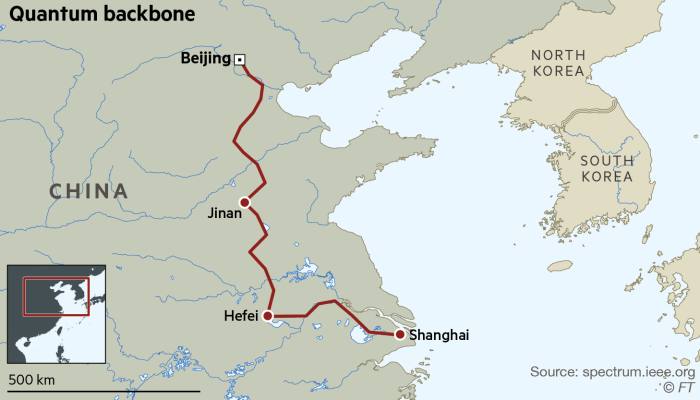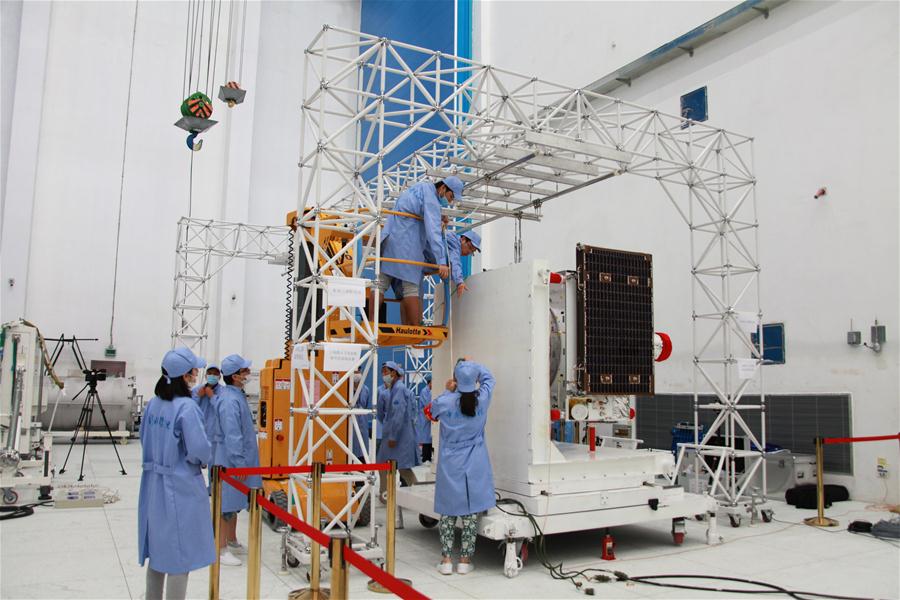A Chinese city has successfully trialled an “unhackable” communications network, raising hope of a rollout of the world’s first widescale commercial application of quantum communications.
Jinan Institute of Quantum Technology announced to Xinhua that the network had lately been tested and the designers were satisfied with its performance, especially in secured communications.
The network had more than 50 rounds of tests at terminals in Jinan government agencies and various Communist Party offices. It transmitted data with quantum encryption keys among nearly 200 terminals in the city during the tests.
Liu Hong, a professor with Shandong University who was involved in the test, said to Xinhua that the network has proved to be in a "very ideal" condition.

The result is a boost for the Beijing-Shanghai quantum network, which is under construction. This uses Jinan, which lies between the two cities, as an intercity-hub to route messages.
The local government of Jinan, a city in eastern China, told Financial Times on Monday that its departments would begin using the network by the end of August.
“We plan to use the network for national defence, finance and other fields, and hope to spread it out as a pilot that if successful, can be used across China and the whole world,” said Zhou Fei, assistant director of Jinan Institute of Quantum Technology, the research institute involved in the project.

Quantum Key Distribution (QKD) networks are more secure than widely used electronic communication forms. If a quantum channel is tapped, it alters the information being relayed, and the disturbances alerts the parties using it.
Tim Byrnes, a quantum physicist at New York University's Shanghai campus told Financial Times, "China has achieved staggering things with quantum research. It's amazing how quickly China has gotten on with quantum research projects that would be seen as expensive to do elsewhere."
In August 2016, China launched the world's first satellite dedicated to quantum experiments. Using this satellite, in June, China announced its quantum satellite has successfully distributed a pair of entangled photons to two stations on land.


















